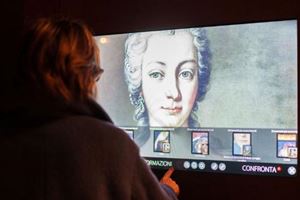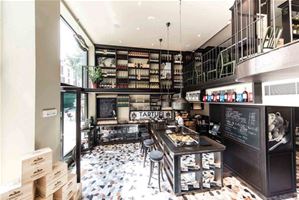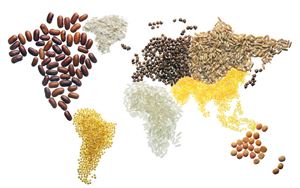It’s the first of its kind in the world: the RFK International House of Human Rights recently unveiled by local officials at the Le Murate complex will truly bring the world to Florence. Opened and managed by the Robert F. Kennedy Centre of Justice and Human Rights Europe (RFK Centre Europe), in collaboration with the City of Florence, the RFK International House will be the new home of digital activists and human rights defenders working to protect human rights across the world.
Located inside the former prison of Le Murate, the RFK International House will be both a symbolic ‘refuge’ and educational retreat for the world’s human rights and political activists, who will come to Florence to meet face to face, share their experiences, and undergo training and research in digital security and social media. Activists will participate in workshops and training courses, held by international human rights experts and advocates from such well-known organizations as Tactical Technology Collective; Global Voices Online; OneWorld Digital Security Exchange; Witness.org; Electronic Freedom Frontier; and Human Rights Watch.
The group of activists who took part in the first training session at the RFK International House were present at the venue’s grand opening on May 17, with Kerry Kennedy and Florence mayor Matteo Renzi. They hailed from such countries as Myanmar, the Philippines, Mexico, Pakistan, Sri Lanka and Zimbabwe.
TF spoke to Magodonga Mahlangu, an RFK laureate and human and woman’s rights defender from Zimbabwe, who said her training in Florence was invaluable: ‘We don’t yet use much social media or digital technology in Zimbabwe but do most of our defending through word of mouth; but now that I have more knowledge and have acquired digital skills, I have much to share with fellow activists back home so that we can start using technology to further our aims.’
Mahlangu, who works with Women of Zimbabwe Arise, a grassroots movement of over 70,000 Zimbabweans, has been imprisoned several times in her home country. However, she said, ‘staying in a former prison that has been liberated from its cells and being able to learn new skills there that will help in the defense of human rights was a truly incredible and liberating experience.’
A project of the RFK Training Institute, the RFK International House extends over approximately 1,500 square metres and occupies three floors. It has 12 apartments, a fully equipped kitchen and common room; staff offices; and a library and meeting/training rooms.
It also hosts Italy’s first Dialogue Cafè, part of a public videoconferencing network for civil society that literally connects people across the world and is sponsored worldwide by Cisco. With high-resolution video and audio, activists and anyone participating can easily share their experiences and meet and collaborate on projects, despite being at great distances. The Dialogue Cafè in Florence joins those in other cities, such as Rio de Janeiro, Paris, Warsaw, London, Northampton, Cleveland, Amsterdam, Ramallah, and Melbourne.
For more about the Dialogue Cafè network, see www.dialoguecafe.org. For more information on the RFK International House of Human Rights and the RFK Centre Europe, see www.rfkcentre.org.





